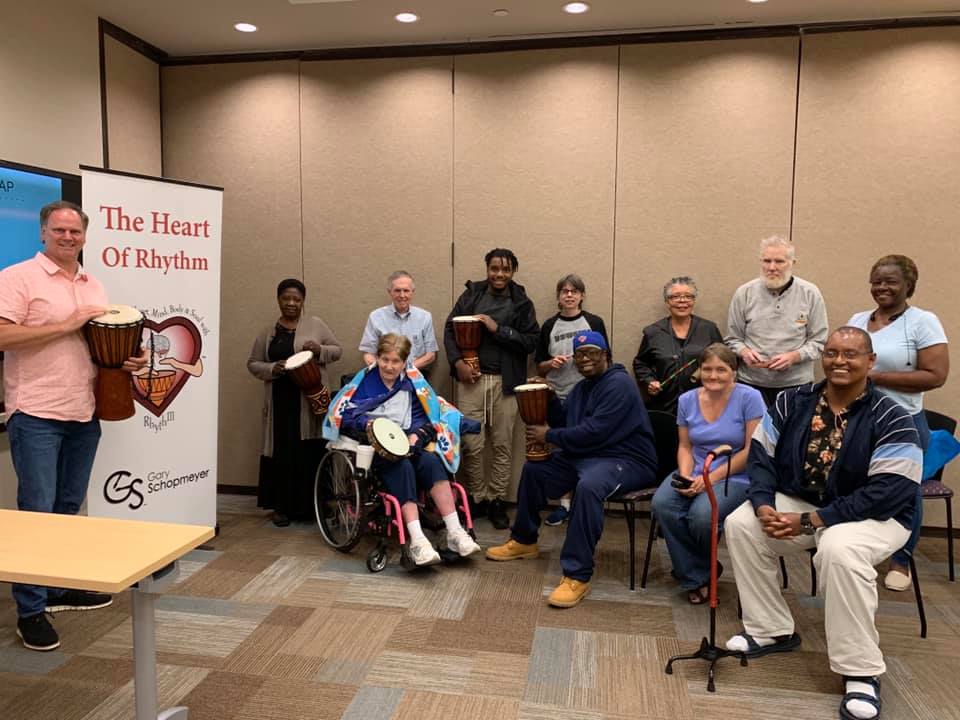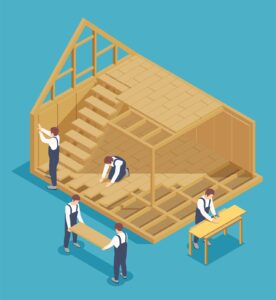
That’s where a Stroke Support Group can help.
Stroke Support Group Northern Virginia offers more than just advice—they give people hope, connection, and encouragement. Whether you’re a stroke survivor, a caregiver, or a veteran dealing with brain injury, joining a support group can make the journey feel a lot less lonely.
What Is a Stroke Support Group?
A group of people who gather on a regular basis to discuss their experiences following a stroke is known as a Stroke Support Group. These groups can include:
- Stroke survivors
- Family members or caregivers
- Healthcare professionals
- Veterans with brain injuries
Support groups typically meet in person at community centers, hospitals, or clinics, and many also offer online meetings for greater accessibility.
These organizations establish a friendly and secure environment where individuals can:
- Talk openly about their experiences
- Share tips and advice
- Offer emotional support
- Listen and learn from others
- Feel less alone in their recovery
Why Are Stroke Support Groups Helpful?
Recovery from a stroke isn’t just about physical healing—it’s also about emotional recovery. People may struggle with:
- Depression or sadness
- Anger and frustration
- Fear of another stroke
- Memory loss or speech issues
- Feeling misunderstood
Being around others who are facing similar challenges helps reduce these feelings. Support groups provide comfort, build confidence, and make recovery more manageable.
What Happens During a Stroke Support Group Meeting?
Each support group is a little different, but here are some things you can usually expect:
- Group Introductions
At the start of the meeting, people usually introduce themselves and share how they’re doing. It’s okay if you’re shy—no one is forced to talk.
- Open Sharing
Members talk about their struggles, progress, or emotions. You’ll hear others describe what they’ve been through. You can share your own story when you feel ready.
- Guest Speakers
Some meetings feature presentations by doctors, nurses, physical therapists, or counselors who discuss stroke recovery, brain injury care, or effective therapies.
- Practical Tips
People often exchange tips on topics such as walking aids, speech therapy, memory exercises, or how to manage daily routines after a stroke.
- Group Activities
Some groups incorporate light activities, such as drawing, journaling, group games, or even chair yoga, to promote healing and fun.
- Emotional Support
Most of all, you’ll feel supported. Even when life is tough, hearing someone say “I’ve been there too” can give you strength.
What Makes These Groups So Special?
Here’s why many people say joining a Stroke Support Group was one of the best decisions they made during recovery:
- You’re not alone – Everyone in the group understands stroke in a personal way.
- You feel heard – People truly listen and care about what you’re going through.
- You learn – Get real tips that others have tested in their own recovery journey.
- You grow – Sharing your story helps others and gives you a new sense of purpose.
- You connect – You build friendships that often last beyond the group meetings.
Stroke Support Groups for Veterans with Brain Injuries
Veterans who have had strokes or brain injuries often face special challenges. These can include:
- Post-traumatic stress
- Memory and balance issues
- Difficulty adjusting to daily life
- Emotional pain from combat or service-related trauma
For veterans, support groups that focus on both stroke recovery and military experiences can be incredibly healing.
These specialized groups provide:
- A space to share military-related challenges
- Understanding from other veterans
- Support from trained counselors
- Tools for adjusting to civilian life after injury
- Hope for a brighter future
Many veterans say they feel more comfortable opening up in groups where others understand both their medical and military backgrounds.
Who Leads Stroke Support Groups?
Groups can be led by different types of people:
- Stroke survivors who’ve made progress in their recovery
- Nurses, social workers, or therapists
- Counselors with training in Brain Injury Support For Veterans
- Volunteers who have experience helping others heal
Leaders typically guide the discussion, keep the group on topic, and ensure everyone feels safe and supported.
Who Can Join a Stroke Support Group?
Most groups welcome:
- Stroke survivors at any stage of recovery
- Caregivers or spouses of stroke survivors
- Family members who want to understand and help
- Veterans living with stroke or brain injury
- Anyone seeking emotional support during or after a stroke
You don’t need a referral, and you don’t need to talk right away. You can start by just listening.
What If I Can’t Go to a Meeting in Person?
If traveling is difficult or you live in a rural area, online stroke support groups can be a great option. You may participate using a computer, tablet, or phone and still get the same encouragement and support.
Some online groups meet over video chat, while others use message boards or chat rooms.
These groups are especially helpful for people who:
- Have mobility issues
- Live far from major cities or hospitals
- Prefer talking from the comfort of home
- Feel more comfortable opening up online
Final Thoughts
Recovering from a stroke is never easy. But you don’t have to do it alone. A Stroke Support Group can provide the emotional care, understanding, and connection that many people often lack during recovery.
Whether you’re a survivor, a caregiver, or a veteran dealing with a brain injury, support groups give you a place to heal—not just your body, but your heart and mind too.
You’ll laugh, cry, learn, and grow with people who truly “get it.” And sometimes, that can make all the difference in your recovery journey.
FAQs: What to Expect from a Stroke Support Group
Q1. Do I have to talk during the meeting?
No, you don’t. You can listen until you feel ready to share your thoughts.
Q2. Are stroke support groups only for survivors?
Not at all. Many welcome caregivers, family members, and even friends who want to offer their assistance.
Q3. What if I had my stroke years ago—can I still join?
Yes! Support groups are open to people at any stage of recovery. You can still benefit, and your story may help others.
Q4. How can a support group help my mental health?
Support groups reduce stress, provide emotional relief, and help you feel less alone in your journey.
Q5. Are there groups for veterans with brain injuries?
Yes. Many communities and organizations offer brain injury support groups specifically for veterans. These groups focus on both medical and military experiences.
Q6. What if I don’t have transportation to get to a meeting?
Look for online support groups. They’re just as helpful and easy to join from the comfort of your own home.
Q7. Are support groups free?
Most are completely free to join. Some may ask for a small donation, but many are run by volunteers or nonprofit organizations.





